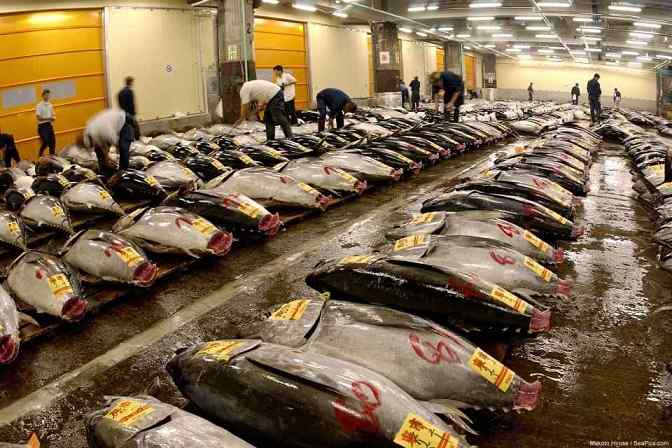Noted conservation scientist David Wilcove estimates that there are 14,000 to 35,000 endangered species in the United States alone. The International Union for Conservation of Nature (IUCN) has identified 16,928 species worldwide as being threatened with extinction, roughly 38 percent of those assessed. Many thousands of species are at risk of disappearing forever in the coming decades.
In North American marine waters, at least 82 fish species are imperiled. Across the globe, 1,851 species of fish, approximately 21 percent of all fish species evaluated — were deemed at risk of extinction by the IUCN in 2010, including more than a third of sharks and rays.
Many marine species have ranges that extend beyond national borders and trade in endangered species is a global phenomenon. Protecting threatened and endangered species is helped by international agreements, such as the Convention on International Trade in Endangered Species of Wild Fauna and Flora (CITES) and the International Whaling Commission.
CITES (Conference of International Trade of Endangered Species) is a critical international event. Not only do we work to add threatened and endangered animals to the Appendices to gain protection from international trade, but we also discuss and strategize anti-poaching efforts. Interpol is a keystone participant in this Conference of the Parties. Also, this is a forum where we discuss and budget for new anti-poaching technologies and protocols.
Week in Review – Every week we round up all the latest ocean-related news stories, summarize and consolidate. This collective, well-vetted publication “The Ocean Week in Review” raises awareness in an increasingly noisy and fast-paced world. We believe that informed advocates are best positioned to make a difference.
Advocacy – Call to Action – When we discover governments or other agencies that are not actively pursuing poachers, arresting and punishing guilty parties to the full extent allowable, we build tools that enable constituents to easily reach out to their representatives and demand action. We rally for protection laws to get passed and then oversee that these laws are being carried out.

Animal poaching and unsustainable fishing practices threaten animal populations. This can cause the populations to be drastically reduced, resulting in population species near extinction. For the sake of our current and future generations, we should seek to support legislation & advocate the protection of wildlife.
Sea Save Foundation is a 501 (c) 3 nonprofit organization EIN: 20-0403083. We received the GuideStar Platinum seal of approval in GuideStar’s Exchange program, meaning we have obtained their highest rating for transparency and legitimacy as an organization.



